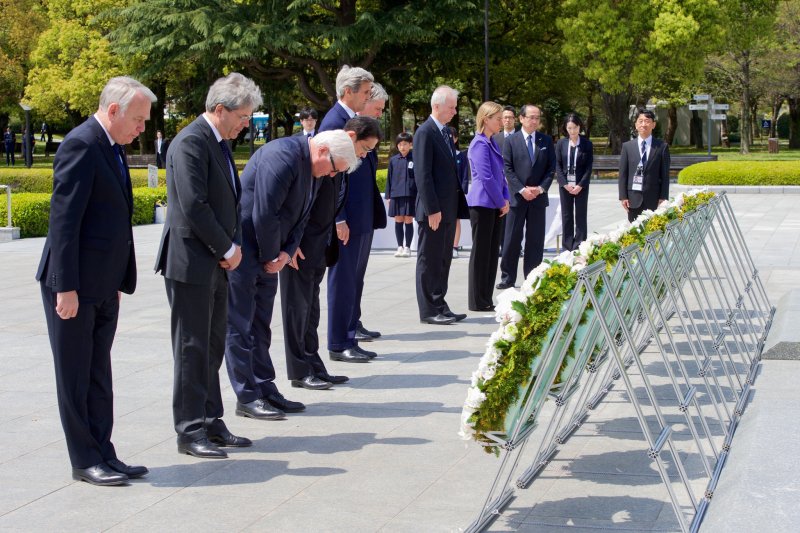1 of 2 | U.S. Secretary of State John Kerry stands with his counterparts on Monday after laying wreaths at the Hiroshima Peace Memorial Park in Japan to commemorate the atomic bomb blast that ended the World War II Pacific campaign during a break in the G7 ministerial meetings in the city. Photo courtesy of U.S. State Department
TOKYO, April 11 (UPI) -- The foreign ministers of the Group of Seven countries issued what they called "the most powerful" condemnation yet of North Korea's nuclear tests and ballistic missile launches in Hiroshima, Japan.
The G7 industrialized nations, which include the United States, Britain, Canada, France, Germany, Italy and Japan, issued the statement on the last day of their gathering in the city where the United States dropped an atomic bomb in August 1945.
The bomb led to the end of World War II and killed 140,000 people.
In a statement signed by all member countries, the G7 foreign ministers vowed to work to create conditions for a "world without nuclear weapons."
The statement included a strong denouncement of North Korea's Jan. 6 nuclear test, and the ballistic missile launches of Feb. 7, March 10 and March 18, South Korean news agency Yonhap reported.
The G7 statement said the countries found North Korea's four nuclear tests extremely regrettable, along with its serious and systemic abuse of human rights, including the abduction of foreign citizens.
On Monday, Kerry visited the Hiroshima memorial, becoming the first U.S. official to do so.
He called the memorial a "gut-wrenching" reminder of the need to get rid of nuclear weapons.
"Everyone in the world should see and feel the power" of the Hiroshima memorial, Kerry wrote in the museum guestbook. The memorial is "a stark, harsh, compelling reminder not only of our obligation to end the threat of nuclear weapons, but to rededicate all our effort to avoid war itself."
A second U.S. bomb that was dropped on Nagasaki, Japan, killed about 70,000 people.















